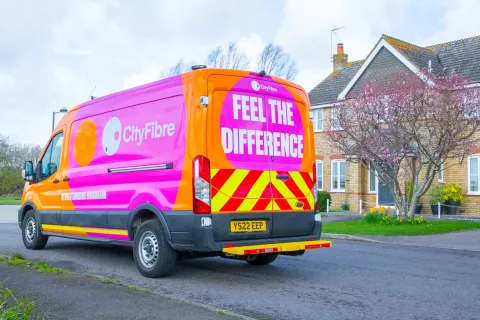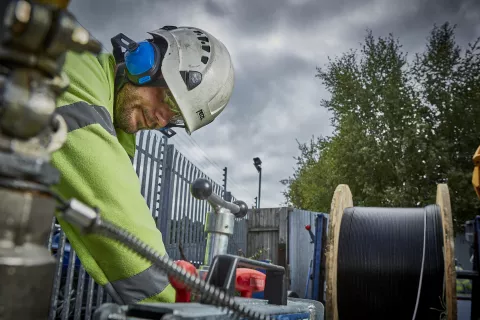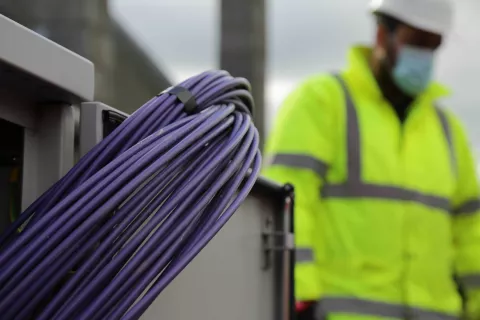
City communications
Bracknell becomes one of UK's best connected towns as CityFibre's primary-build completes
4 February 2025
Last week the Digital Economy Bill 2016-7 was passed by both Houses of Parliament and now receives Royal Assent which means it will be law imminently. The new legislation brings with it a number of important new implications for the industry (with some last minute changes to be aware of) so we’ve provided a summary of the key points below:
 Paul Heritage-Redpath, Product Manager[/caption]
Last week the Digital Economy Bill 2016-7 was passed by both Houses of Parliament and now receives Royal Assent which means it will be law imminently. The new legislation brings with it a number of important new implications for the industry (with some last minute changes to be aware of) so we’ve provided a summary of the key points below:
30Mbps USO scrapped in favour of 10Mbps
The 10Mbps USO for broadband has been on the cards for quite some time and its approval comes as no surprise to us. However, quite recently a proposal was passed by the House of Lords to increase this to 30Mbps by the existing 2020 deadline which seemed completely implausible to us. This has since been scrapped and the original 10Mbps confirmed; however a further clause to increase the USO has now been included. The Government will now be able to raise the USO’s minimum speed, once 75% of households have been upgraded to ‘superfast broadband’ services.
A full consultation is now expected to be held to iron out the details of the USO implementation, funding and requirements on industry.
Related articles:
Paul Heritage-Redpath, Product Manager[/caption]
Last week the Digital Economy Bill 2016-7 was passed by both Houses of Parliament and now receives Royal Assent which means it will be law imminently. The new legislation brings with it a number of important new implications for the industry (with some last minute changes to be aware of) so we’ve provided a summary of the key points below:
30Mbps USO scrapped in favour of 10Mbps
The 10Mbps USO for broadband has been on the cards for quite some time and its approval comes as no surprise to us. However, quite recently a proposal was passed by the House of Lords to increase this to 30Mbps by the existing 2020 deadline which seemed completely implausible to us. This has since been scrapped and the original 10Mbps confirmed; however a further clause to increase the USO has now been included. The Government will now be able to raise the USO’s minimum speed, once 75% of households have been upgraded to ‘superfast broadband’ services.
A full consultation is now expected to be held to iron out the details of the USO implementation, funding and requirements on industry.
Related articles:
With network projects in over 60 cities and construction underway to reach up to 8 million homes

City communications
4 February 2025

Project Gigabit
20 January 2025

City communications
20 January 2025